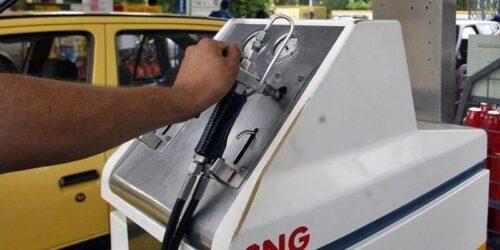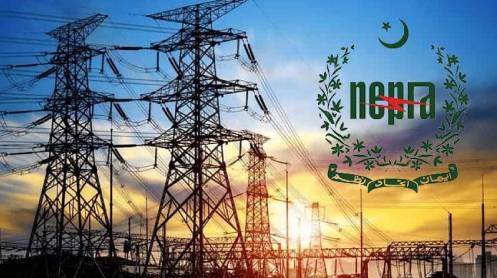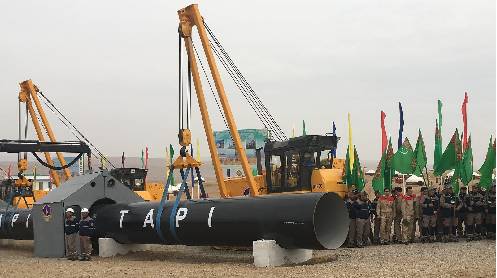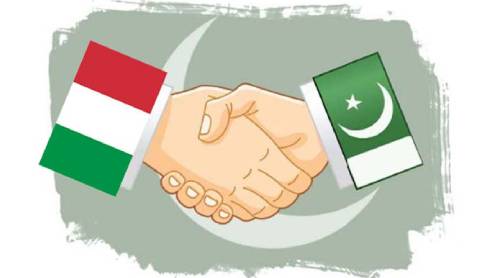The Compressed Natural Gas (CNG) association has asked the government to allow supply of stranded indigenous gas to CNG stations for sale to motor vehicles. The step they said would help the government in saving dollars outflow and earning taxes to the tune of $778.9 million a year.
Already, there are 50 million cubic feet per day (MMCFD) of such unutilised gas available and can be instantly supplied to the sector, as this gas is not fit to be injected into the pipeline network due to impurities in it. It is predominantly methane (CH4), a vital source of energy and fuel, but its refining and then, making it fit for use in other sectors need huge investment.
It is pertinent to mention that a total of 2,300 CNG stations are established in the country. Out of these, 1,100 stations are in Punjab, 600 in Sindh, 575 in Khyber Pakhtunkhwa and 25 in Balochistan.
Group leader and former central chairman of the All Pakistan CNG Association (APCNGA) Ghiyas Abdullah Paracha and its central chairman Mian Shahid Iqbal wrote a letter on Wednesday to the Minister for Finance and Minister for Petroleum. They prayed for granting this amount of unused gas to the sector to help the industry and also save foreign exchange.
Paracha said that immediate supply of the only 50mmcfd of indigenous unused natural gas to CNG stations for its re-sale to motor vehicles can save the country’s precious foreign exchange of approximately $587.26 million per annum and the government can also generate approximately $191.7 million/annum.
He further said, “While having 25 years long experience in the gas sector, I can ensure $200 million worth of benefit to the country within one month with available resources if an opportunity is given to me.” He added, “I am ready to my claim on every forum and I want the government to give a level playing field to the CNG industry to run its business.” The CNG industry is ready to offer a cheaper eco-friendly fuel to motor vehicles in order to provide immediate relief to the public and the national exchequer as well, said the senior leader of the CNG association The CNG stations are established across the country, and vehicles also already got fitted CNG kits while oil prices are touching a record high level, so the government should focus on the CNG sector to provide cheap fuel for the motor vehicles plying on roads. At present, around half of the CNG stations in Punjab are closed due to the non-availability of gas since December 2021. The closure of stations and the non-availability of gas have posed a serious danger to Rs150 billion of local investment made in developing CNG kits for motor vehicles. The sector provides direct and indirect jobs to over half a million people, and the total gas consumption required for the sector is 400mmcfd.
Elaborating, he said that if the government allocates this gas to CNG stations for use in motor vehicles, it can save approximately $434.49 million/annum, while it can save two percent Unaccounted for Gas (UfG), which is equivalent to 5mmcfd worth $52.84 million annually. Similarly, the supply/sale of an additional 10mmcfd stranded natural gas to CNG stations for new conversions and its use in motor vehicles can save $86.89 million/annum. Furthermore, the installation of sequential injection kits in motor vehicles will save $17.54 million liters of petrol and as a result, foreign exchange of $13.03 million/annum can be saved.
About revenue generation, he said that tax collection at the time of distribution/sale to a third party (CNG Industry) can generate $48.9 million/annum while tax collection at a retail price of CNG (supplied by CNG stations to motor vehicles) can generate $102.366 million/annum and tax collection on 5mmcfd of natural gas, which can be saved through two percent cut in UfG by supplying the natural gas to CNG stations for re-sale to motor vehicles, can generate $10.24 million/annum. Similarly, $9.7 million per annum tax collection at the stage of distribution/sale to a third party (CNG stations) and $20.47 million annually can be generated through the allocation of 10mmcfd of local unutilised natural gas, which will be saved through sequential injection kits on motor vehicles, said Paracha.





